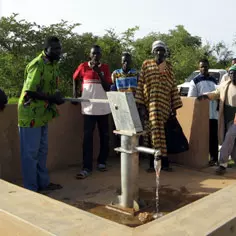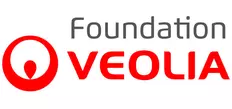
Humanitarian and Development
Project leader
Amitié Solidarité Savoie-Sahel
Place
Gorguel, Dalla, Senaikaye et N'goroua, province du Soum, Burkina Faso
Sponsor
Christophe Lassauzet
Grant(s)
30,000 euro to the Selection Committee at 2006/12/05
“This program will help the population, particularly the young, to remain on their land, to which they are deeply attached. This should help to slow down the rural exodus to the suburbs of Ouagadougou or to the European “Eldorado”.”
Christophe Lassauzet
Deep in the Sahel zone, the province of Soum, in the north of Burkina Faso, is desperately confronted with advancing desertification. Grazing lands are increasingly sparse and inadequate for the life of the traditionally pastoral populations. Many youths have to leave for the capital, the neighboring countries, or even Europe. And yet, the population is attached to its land and wants to organize to continue to live there, despite the difficult climatic conditions. Thus in the villages of Gorguel, Dalla, Senaikaye and N’goroua, the Burkina Faso organization Hansina Domba has set up an action program to improve living conditions. It is assisted by the association Amitié Solidarité Savoie-Sahel (ASSS), which has for years, been backing the development initiatives in the region.
Water, a factor for development
The two partners drew up a drinking water supply program for the four villages, with a determination to substantially improve the healthy living conditions of the villagers and, subsequently, to enable them to branch out into truck gardening activity, thanks to irrigation systems.
The water supply of 3000 persons will be carried out thanks to the construction of four boreholes and a lined well. At the same time, the banks of a natural pond will be developed so that livestock can water there without soiling or spoiling the water.
By providing the means to initiate local agriculture, this program will help provide additional indispensable food to the families, and particularly the children. But beyond this, it will above all be an indispensable vector for the whole future economic and social development of the region.

